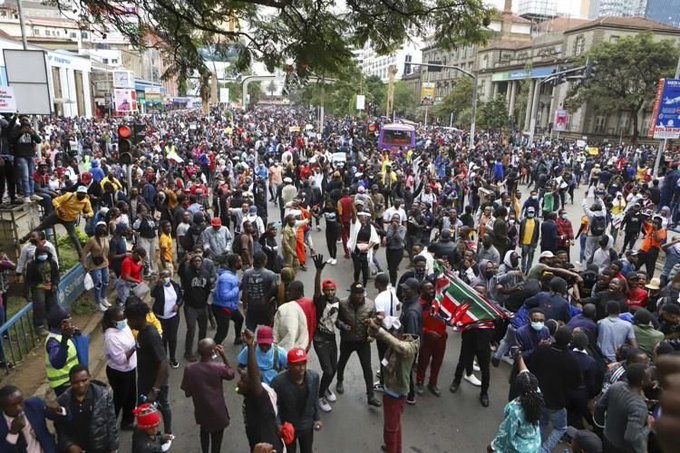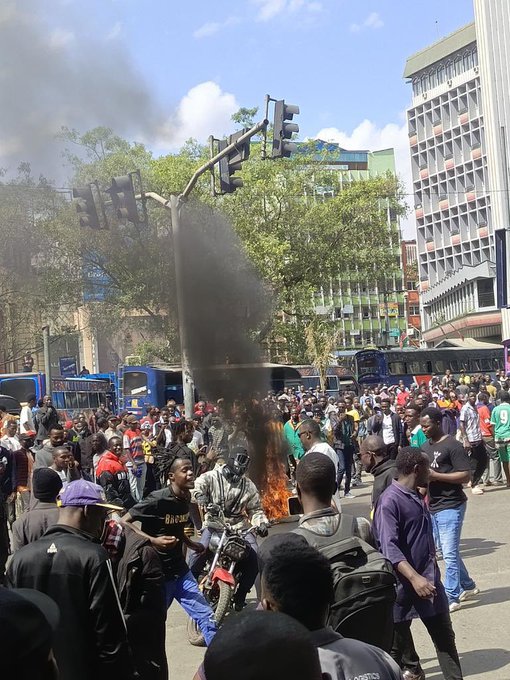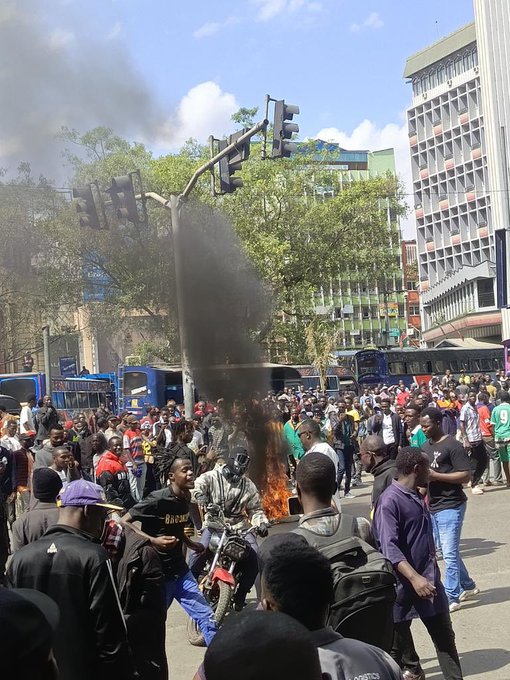NAIROBI, Kenya- Nairobi’s Central Business District (CBD) remains paralyzed this Thursday as hundreds of young Kenyans, enraged by the death of blogger Albert Ojwang in police custody, continue to take to the streets
Ojwang, a 31‑year‑old blogger and social critic, was arrested last Friday in Homa Bay County on allegations of defamation against the deputy police chief.
He was later transferred roughly 400 km to Nairobi, where he was found dead at the Central Police Station on June 8 in the early hours, according to activists and rights organizations.
Authorities initially claimed that Ojwang died after hitting his head on a cell wall, implying a self‑inflicted wound.
However, a subsequent autopsy conducted by the Independent Policing Oversight Authority (IPOA) revealed injuries consistent with assault, including head trauma and neck compression, suggesting he died “at the hands of the police”.
The disclosure sparked outrage among Kenyans—particularly young people—who poured into Nairobi’s CBD in protest of what they see as a worrying pattern of police brutality, impunity, and lack of accountability.
Protests Turn Violent
On Monday, demonstrators attempted to march to the Central Police Station, but were met with tear gas deployed by riot police on two occasions, causing mass disruption in the CBD .
Footage from the scene showed demonstrators scattering as clouds of gas choked key arteries of the downtown area, paralysing traffic and forcing businesses to shut.
Activists, including the People’s Liberation Party, framed the death as part of a broader crisis:
“Our demands are still not met… the killings are still happening… This country belongs to the rich, so it is time for the poor to rise”.
Human rights groups such as Amnesty Kenya said Ojwang’s death reflects “speaking against the government is a crime” and called for an independent, transparent investigation.
Official Responses
President William Ruto condemned the death as “heartbreaking and unacceptable” and confirmed it occurred at the hands of police—reversing earlier statements by law enforcement.
He called for a thorough, interference‑free probe.
Inspector General Douglas Kanja apologized for the misleading explanation he previously offered, acknowledging that the initial assertion of suicide was false.
Interior Minister Kipchumba Murkomen assured the public that all officers involved would be held accountable and that interference in the IPOA investigation would not be tolerated.
IPOA has identified five officers involved and suspended them pending investigation.
No justice, no budget!We can’t be paying taxes to feed blood-sucking gnats called MPs and their hirelings.We reject!#ArrestEliudLagat
Impact on the CBD and Public Sentiment
Nairobi’s CBD remains crippled, with roads blocked, shops shuttered, and commuters stranded. The protest underlines broader disillusionment among young Kenyans regarding police abuses and a decline in trust in state institutions
Observers note that in recent years, mass demonstrations—such as the 2024 Gen Z protests over tax hikes—also paralyzed the CBD and often were met with police repression and tear gas
What Comes Next
The IPOA-led investigation is underway, with details due to be released in the coming days. Civic groups, youth organizations, religious leaders, and human rights bodies are calling for more than just accountability—they demand systemic police reform, an end to extrajudicial killings, and strengthened oversight.
As young Kenyans vow to stay on the streets until justice is delivered, Nairobi’s CBD remains a battleground—a symbol of the country’s struggle over rights, accountability, and the state’s treatment of dissent.
In a rare reversal, President William Ruto on Wednesday publicly acknowledged that Ojwang did indeed die at officers’ hands, labeling the incident “heartbreaking and unacceptable,” and called for an unbiased investigation.
Many Businesses have closed down.






